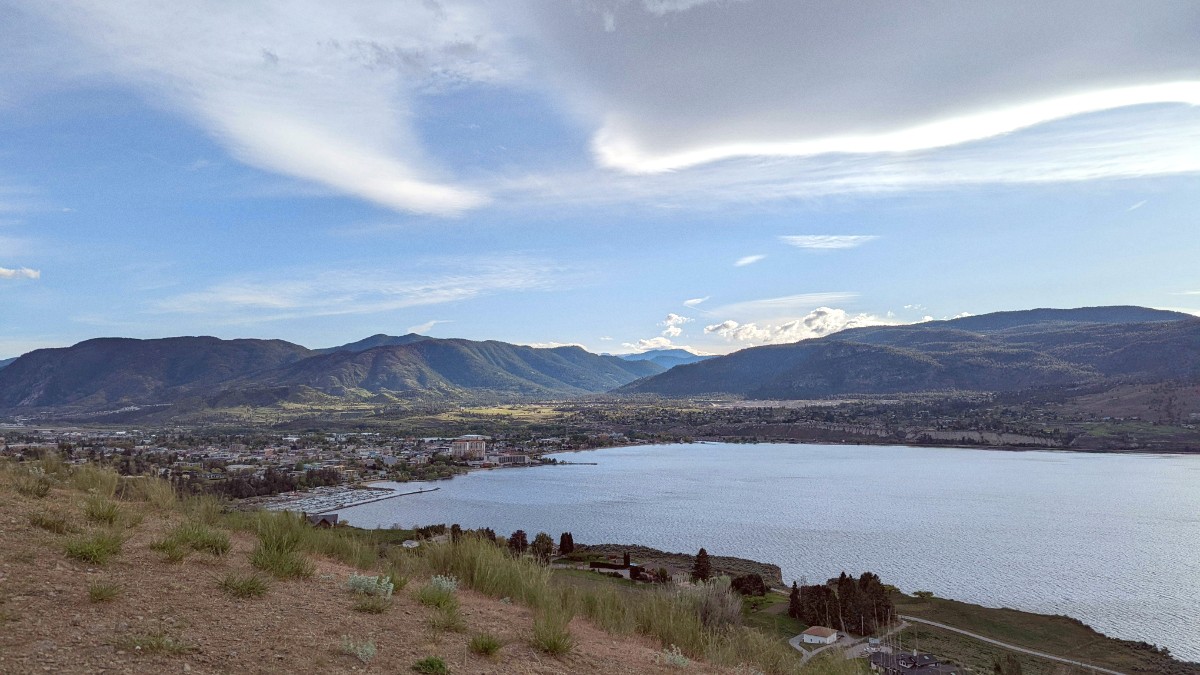
British Columbia, Canada
The Okanagan Valley is home to numerous provincial and regional parks. These spaces try to preserve its unique ecosystems, from semi-arid desert and grasslands to forests, wetlands, and aquatic habitats.
Recycling programs are well-established and widely available across the Okanagan Valley. Look for blue bins for mixed recycling and green bins for organic waste in some municipalities. Hotels and public spaces often have separate bins.
The Okanagan Valley is a semi-arid region and prone to droughts, notably in summer. Water conservation is a critical issue for the local population and ecosystems. Travelers may practice water-saving habits during their stay.
The Okanagan Valley's natural environment is its greatest asset.
Stay on marked trails when hiking or cycling to minimize impact on delicate ecosystems and prevent erosion. Do not disturb wildlife or remove natural elements. Respect closures or restricted access areas.
Reduce single-use plastics and excessive packaging by bringing your own reusable shopping bag and a Reusable water bottle. Tap water is safe to drink, so refilling your bottle is easy. Pack out all your garbage when enjoying outdoor activities.
Consider purchasing carbon offsets for your flights to mitigate your environmental impact. Many airlines offer this option directly during booking.
Look for accommodations with environmental certifications or those that demonstrate clear sustainable practices. Choose tour operators that emphasize eco-tourism principles, responsible wildlife viewing, and respect for natural environments.
Engage with an open mind. Listen to local perspectives, especially regarding environmental issues or historical narratives. Avoid making assumptions or generalizations about the culture or people.
A simple gesture or question ("May I take your picture?") shows respect. Do not photograph people in private moments or without their consent. Be mindful of signs indicating "no photography" or "restricted access" in certain areas.
Practice water-saving habits during your stay. Take shorter showers, turn off taps while brushing teeth, and reuse towels at your accommodation if possible. Report any leaks or water waste to your accommodation provider.
Responsible travel supports local communities and individuals.
Prioritize dining at local, independent restaurants, buying from small, artisan shops, and purchasing wine directly from family-owned wineries. This supports the local economy directly.
Look for fair trade certified products where applicable. Prioritize purchasing goods from local artisans and producers ("Okanagan Made" or "Made in BC" products). This directly supports the community and local craftspeople.
Do not engage in any illegal activities, including those that might exploit local people or resources. Be aware of and avoid any practices that may inadvertently cause harm to local communities or the environment. Research tour operators to ensure ethical policies.
Never purchase illegal wildlife products or items made from endangered species. This directly counters conservation efforts.
If you wish to contribute philanthropically, consider donating to reputable local conservation organizations or community charities. Avoid giving directly to panhandlers.
Confirm that tour operators have clear ethical policies regarding labor and environmental impact before booking.